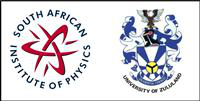Speaker
Apply to be<br> considered for a student <br> award (Yes / No)?
No
Abstract content <br> (Max 300 words)
“Active learning” has attracted attention as a successful and desirable way of enhancing student performance – but what exactly is “active” learning”? Instructors will generally agree that what really matters is what you make the students do – as opposed to what the instructor does. With this in mind some changes were made last year to the way tutorial sessions were conducted in the physics course for first year engineering students. The traditional tutorial had for some decades been conducted as a 45 minute session starting with 30 minutes of free student-tutor interaction, where students were expected to work on their “prepared” tutorial exercises and request assistance from tutors when in difficulty. The balance of the session was devoted to either a “spot test” or a “discussion question” which contributed to their continuous assessment mark. The majority of students have been frequently observed simply to waste their time during the first 30 minutes of a session, and then to apply their minds diligently in the last 15. The pass rate for the mid-year examination in 2012 was extremely poor, which resulted in a simple intervention - which was to increase the time to 30 minutes, spent on compulsory, mark-bearing tasks performed by the students. This change was implemented for the second semester. At the end of the year the examination pass rate improved dramatically, which could be attributed at least partially to this intervention. This intervention shows that “active learning” need not be complex or inconvenient – the intervention consisted in a simple quantitative change: only the duration and quantity - not the type - of learning activity was changed.
Would you like to <br> submit a short paper <br> for the Conference <br> Proceedings (Yes / No)?
Yes
Level for award<br> (Hons, MSc, <br> PhD)?
N/a
Main supervisor (name and email)<br>and his / her institution
n/a

